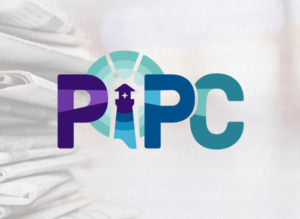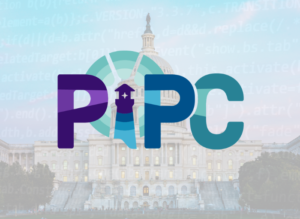FOR IMMEDIATE RELEASE
The Public Interest Privacy Center (PIPC) joins 11 other members of the Federal Education Privacy Coalition (FEPC), a coalition of nationwide education membership and privacy-focused organizations interested in advancing principled student privacy practices, in a letter encouraging Congress to pass the Children and Teens’ Online Privacy Protection Act (COPPA 2.0) without delay.
From the letter:
“COPPA 2.0 should be passed to ensure that schools retain the authority to consent to data collection and use on behalf of parents in educational contexts. School districts rely on the FTC’s COPPA FAQs and the FTC’s Statement of Basis and Purpose to the 1999 COPPA Rule to consent to such technology uses for teaching, learning, and administration. This longstanding and appropriate authority has not yet been codified into federal statute. COPPA 2.0 would solidify this fundamental administrative and educational function for school districts and safeguard their ability to use effective technologies. COPPA 2.0 is crucial to preserve the ability of schools to provide their students with access to technology when the school has a contract with the edtech vendor and has thoroughly vetted the platform for privacy and security safeguards.
Additionally, COPPA 2.0 would better align protections in the Children’s Online Privacy Protection Act (COPPA) with those in the Family Educational Rights and Privacy Act (FERPA). While COPPA currently only protects children under the age of 13, FERPA provides privacy protections for students of all ages. As a result, most elementary and middle school students are protected by both COPPA and FERPA, yet students over 13 are only protected under FERPA and thus not entitled to COPPA’s heightened legal protections when using edtech at school. We wholeheartedly believe that all students deserve heightened privacy protections when using edtech at school, regardless of their age. By increasing the age of individuals entitled to foundational privacy protections under COPPA from under 13 to under 17, COPPA 2.0 not only extends protections to older students but also empowers schools to demand stricter privacy measures for all students when negotiating agreements with edtech providers."
Additionally, PIPC joins over 60 organizations in a letter from Fairplay, American Academy of Pediatrics, Center for Digital Democracy, and Common Sense Media urging House and Senate leadership to include the strongest version of COPPA 2.0 in an end of the year package.
From the letter:
"COPPA 2.0 is an effective, widely supported, bipartisan update to its 25-year-old predecessor. It extends privacy protections to teens, implements strong data minimization principles, bans targeted advertising to covered minors, gives families greater control over their data, and strengthens the law to ensure covered entities cannot evade enforcement. American families urgently need these protections. Big Tech’s business model relies on the collection of millions of 1 data points on children and teens, all to rake in record profits through design features that maximize engagement in order to sell targeted ads. The use of targeted advertising results in kids being shown ads for alcohol, tobacco, diet pills, or gambling sites. These risks are multiplied because social media platforms are designed to be addictive, so that kids will spend more time online. As the Surgeon General has advised, this misuse of young people’s personal information has contributed to a startling mental health crisis among our youth, along with a myriad of online harms including sexual exploitation, rampant cyberbullying, and eating disorders.The data-driven business model is directly at odds with the health, safety, and privacy of our nation’s children and teens, and Congress must act to put new safeguards in place."
###
About PIPC
Founded in 2022, the Public Interest Privacy Center is a nonprofit organization that equips stakeholders with the insights, training, and tools needed to cultivate effective, ethical, and equitable privacy safeguards for all children and students. Our vision is that high-impact stakeholders at every tier will have the information and tools necessary to protect all children’s fundamental right to privacy. By educating and equipping high-impact groups and fostering a culture of privacy, PIPC helps create an environment where all children will enjoy privacy-protected benefits of emerging technologies and data use.


